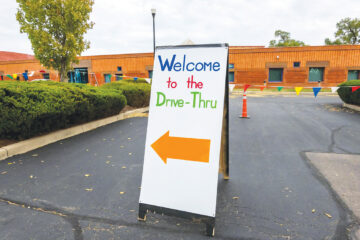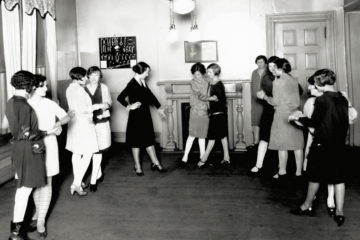Temple Israel to unveil new religious school curriculum
New curriculum at Temple Israel
Marshall Weiss
The Dayton Jewish Observer
This fall, students and teachers are in for a change at Temple Israel’s religious school.
The Reform congregation will introduce a new curriculum developed by a parent committee over several months.
 The end result, they hope, is a school that matches what they want their children to know, from the time they enter in preschool until they reach 10th grade.
The end result, they hope, is a school that matches what they want their children to know, from the time they enter in preschool until they reach 10th grade.
“It reflects our own values,” says Karen Bodney, Temple Israel’s director of education.
Under the guidance of Rabbi David Sofian, Bodney facilitated the parents’ work on the committee during eight months of meetings.
They began carving out the new curriculum based on what members believe their children should know by the time the students reach confirmation.
Committee members identified broad concepts such as holidays, values, life cycles, theology and history.
From there they fleshed out the details and worked with the rabbi and Bodney to incorporate pieces of the curriculum into the school according to age and developmental skills.
The new curriculum follows a “spiraling” concept. When learning about Chanukah, for example, they’ll learn something age appropriate in each grade that builds on the previous grades.
“This concept came from Rabbi Sofian,” Bodney says of the spiral curriculum. “He set parameters.”
She says the experience of developing the curriculum proved a Jewish learning experience for committee members.
“Some had to learn as they went,” she says of those who weren’t familiar with certain Jewish concepts. “For others, it sparked more learning.”
She says that several of the meetings were emotionally charged. “All committee members come from different backgrounds. But the trend is that parents want to be involved. They want to learn next to their kids.”
Bodney was also pleasantly surprised at what parents wanted included in the curriculum, such as Hebrew script, which was not previously taught at the temple.
The parents want their children to go to Israel and to be able to function at some level there, she says. For the same reason, the parents want Modern Hebrew taught through eighth grade, including Modern Hebrew poetry.
“We had to prioritize,” she says. For example, the committee eliminated the study of trope — or musical notation of the Torah and Haftorah — in favor of comparing the Jewish dietary laws of kashrut with dietary restrictions of other religions.
The greatest changes will be in the ninth and 10th grades, which met every other week for an hour with Sofian this year.
Now they will combine and meet every week with the rabbi.
“We have so much we want to teach them: cultural pieces related to values,” Bodney says.
Temple Israel’s Religious School meets on Wednesday afternoons and Sunday mornings. Approximately 150 children are enrolled in the school.
Bodney says it will take about five years to evaluate the effectiveness of the new curriculum.
“The normal trend (at synagogues) is for kids to drop out after Bar/Bat Mitzvah,” Bodney says. “We wanted to do this to keep our kids in there. Our aim is to reflect who we are at Temple Israel.”
© 2005 The Dayton Jewish Observer
E-mail this Page to a Friend





